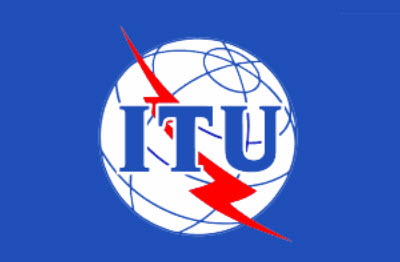International Telecommunication Union (ITU)
What is the ITU?

The International Telecommunication Union (ITU) is a specialized agency of the United Nations responsible for all matters related to information and communication technologies (ICTs). Founded in 1865, it is one of the oldest international organizations in existence – and it is much older than the United Nations. The ITU plays a crucial role in global telecommunication and ICT development.
History of ITU before it became a part of the United Nations
The International Telegraph Union (ITU) – a predecessor of The International Telecommunication Union (ITU)
The ITU was preceded by the International Telegraph Union, which drafted the first international standards and regulations for international telepgraph networks. This was a time when the need for international standards for communication had become much more urgent than before.
Starting in 1849, Western European states entered into various bilateral and regional agreements to standardize and regulate international communications. In 1865, this patchwork of agreements had become difficult to handle and many governments agreed that a central framework was needed. Among other things, there was an urge to standardize telegraphy equipment, establish international tariffs and accounting rules, and create uniform operating instructions.
The first International Telegraph Conference took place in Paris between March 1 and 17 May, with the French Government hosting delegations from 20 European countries. This resulted in the creation of the International Telegraph Convention, which was signed on May 17, 1865.
The International Telegraph Union (ITU) – the predecessor of ITU – was established as result of this 1865 Conference.
The International Telegraph Union was responsible for implementing certain standard principles for international telegraphy.
Examples:
- Rules for using Morse code for international telegraphing
- Rules for upholding the secrecy of correspondence
- Ensuring that everyone has the right to use international telegraphy
The International Radiotelegraph Union – another predecessor of The International Telecommunication Union (ITU)
The International Radiotelegraph Union (IRU) is also a predecessor for the The International Telegraph Union. The IRU was founded in 1906, when the first International Radiotelegraph Convention took place in Berlin with representatives from 29 different nations participating. The International Radiotelegraph Convention was established at this convention, and an annex to the convention eventualy became the ITU Radio Regulations.
The International Telecommunication Union is established
ITU was always close to IRU, and ITU was even the central administrator of the IRU conventions. In December 1932 (from the 3rd to the 10th) a joint conference for ITU and IRU was held where the two organizations merged to form the International Telecommunication Union.
The 1875 Telegraph Convention and the 1927 Radiotelegraph Convention were combined to form the International Telecommunication Convention. This new combined convention covered both telegraphy, radio communication and telephony.
ITU and the UN
The United Nations (UN) was established on October 24, 1945. Roughly two years later, on November 15, 1947, representatives of ITU and the UN signed an agreement which recognized ITU as the specialized agency for global telecommunications. This agreement came into force on January 1, 1949, thereby making ITU an organ of the United Nations.
Key Functions of the ITU
1. Standardization
The ITU develops international standards to ensure seamless global communication. These standards cover a wide range of areas including radio communication, telephony, and internet protocols. By establishing uniform guidelines, the ITU facilitates interoperability and compatibility among diverse communication systems worldwide.
2. Spectrum Management
Managing the radio-frequency spectrum and satellite orbits is a vital function of the ITU. It allocates global radio spectrum and satellite orbits to prevent interference between radio services and to ensure efficient use of the spectrum. This is critical for the operation of services such as broadcasting, mobile phones, and navigation systems.
3. Development
The ITU works to bridge the digital divide by promoting equitable access to ICTs. Through its development sector, it provides support to developing countries to enhance their telecommunication infrastructure and services. The ITU also helps implement projects that boost ICT accessibility, affordability, and education.
4. Coordination
As an international body, the ITU serves as a platform for governments and the private sector to coordinate global telecommunication policies. It organizes conferences and meetings where stakeholders can discuss and agree on important telecommunication and ICT issues.
Membership and Structure
The ITU has a diverse membership that includes 193 member states and over 800 private sector entities and academic institutions. It operates through three main sectors:
- ITU-R: Radiocommunication Sector, which manages the international radio-frequency spectrum.
- ITU-T: Telecommunication Standardization Sector, which develops global standards.
- ITU-D: Telecommunication Development Sector, which focuses on fostering development and promoting ICT access in underserved areas.
Notable Initiatives
The ITU spearheads various initiatives aimed at enhancing global ICT. These include the World Telecommunication/ICT Indicators Symposium (WTIS) and the Global Symposium for Regulators (GSR), which provide platforms for discussing trends, challenges, and solutions in the ICT sector.
Why is the ITU Important?
The ITU’s work is essential in our increasingly connected world. By setting standards, managing critical resources, and promoting development, the ITU helps ensure that communication technologies are accessible, reliable, and sustainable. Its efforts enable global communication and contribute to social and economic progress.
The International Telecommunication Union plays a pivotal role in shaping the future of global communication. Its standards and initiatives foster international cooperation, drive technological advancement, and promote digital inclusion. As technology continues to evolve, the ITU’s mission remains critical in ensuring that everyone can benefit from the advances in ICT.
